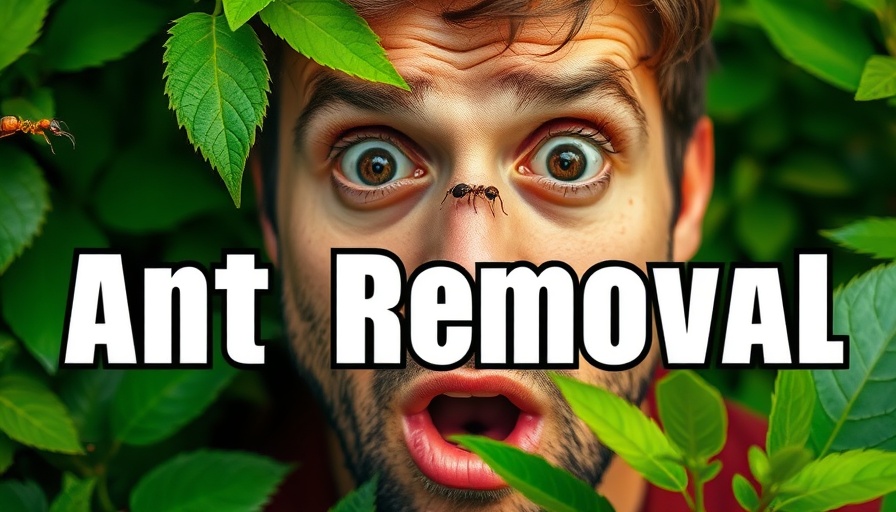
The Unexpected Ant Hill Solution: Why Gardeners Are Taking Action
Every season, as nature awakens, gardeners prepare to cultivate vibrant spaces filled with flowers, vegetables, and herbs. But some are encountering an unexpected problem in their blissful gardening journey: ant hills. While ants are generally beneficial for soil aeration and decomposing organic matter, an overabundance of ant colonies can wreak havoc on a carefully curated garden. In recent weeks, a fascinating trend has emerged: gardeners are pouring a simple liquid solution onto these pesky ant hills. What is this mysterious potion, and how does it help protect our beloved gardens?
Exploring the Solution: The Magic of Soapy Water
The solution that many gardeners are reaching for is a mix of water and dish soap. While this may sound simple, its effectiveness has garnered significant attention. The soap disrupts the surface tension of water, allowing it to seep into the ant hills more efficiently, helping flush the ants out. Moreover, it targets the outer layer of the ants’ exoskeleton, effectively suffocating them if they’re caught in the liquid. This eco-friendly method captures the essence of organic gardening, where minimizing chemical use takes precedence.
The Dual Benefit: Ant Control and Soil Health
In addition to controlling the ant population, using soapy water also offers an auxiliary benefit: enhancing soil health. As ants dependably carry organic matter into their underground networks, their presence can ensure that plant roots receive nutrients. However, too many ants can lead to the formation of large mounds that disrupt the aesthetic appeal of the garden. By managing their numbers, gardeners can strike a balance that maintains the soil structure while preventing overpopulation.
A Practical Approach: Tips for Effective Application
If you decide to give this technique a try, here are some practical tips to ensure it's effective:
- Choose the right time: Apply this mixture early in the morning or late in the afternoon when ants are most active.
- Mix it properly: Combine one to two tablespoons of dish soap with a quart of water for optimal results.
- Target specific areas: Be strategic about where you pour; locate visible ant trails or mound formations.
- Follow-up observation: Check the area over several days to assess ant activity and adjust your strategy accordingly.
Growing Your Garden Through Community Efforts
Ant management isn’t just about individual gardens; it showcases the strong sense of community among gardeners. Local gardening clubs and social media groups are doubling down on sharing these innovative pest management tips. In our connected world, everyone with the right gardening tools becomes an educator, demonstrating effective methods and encouraging others to adopt eco-friendly solutions. This team spirit bolsters community ties, allowing us all to grow better gardens together.
Embracing a Sustainable Gardening Future
As we contemplate the broader impact of gardening on our environment, it's inspiring to see how many are embracing sustainability. Organic gardening practices not only reduce the need for harsh chemicals but also contribute to a more vibrant ecosystem. When communities share knowledge and techniques like this soapy water ant solution, it paves the way for healthier and more sustainable gardens. Whether you’re a seasoned gardener or just starting with container gardening, there are always gardening tips to discover.
Final Thoughts: The Value of Knowledge in Gardening
An engaging garden teaches us valuable lessons about persistence, community involvement, and nature’s delicate balance. The next time you spot an ant hill in your flower bed, remember this simple yet effective approach. Your garden will thrive under your care, and your community bonds may also deepen as you share techniques and successes. If you haven't already, consider stocking up on gardening supplies today – supportive gardening tools will surely inspire even the smallest gardening venture.
 Add Row
Add Row  Add
Add 




Write A Comment